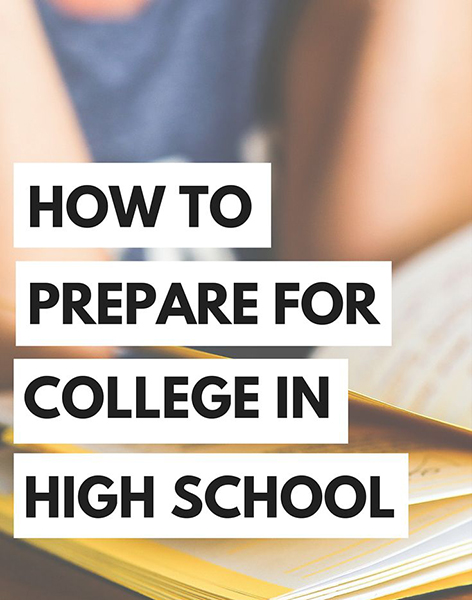Don’t underestimate the importance of 9th grade when planning for college
Students To Do List:
- Take challenging classes in core academic subjects. Most colleges require four years of English, at least three years of social studies (history, civics, geography, economics, etc.), three years of mathematics, and three years of science, and many require two years of a foreign language. Round out your course load with classes in computer science and the arts.
- Work with one of your parents to estimate your financial aid using FAFSA4caster and be sure to save for college.
- Get involved in school- or community-based activities that interest you or let you explore career interests. Consider working, volunteering, and/or participating in academic enrichment programs, summer workshops, and camps with specialty focuses such as music, arts, or science. Remember—it’s quality (not quantity) that counts.
- Ask your guidance counselor or teachers what Advanced Placement courses are available, whether you are eligible, and how to enroll in them.
- Use the U.S. Department of Labor’s career search tool to research your career options.
- Start a list of your awards, honors, paid and volunteer work, and extracurricular activities. Update it throughout high school.
Plan out a challenging program of classes to take.
- Colleges want to know which courses you’re taking and are looking at your grades in high school. By starting to plan for your college future in your freshman year you give yourself more options.
- The courses you take in high school show colleges what kind of goals you set for yourself. Are you signing up for advanced classes, honors sections, or accelerated sequences? Are you choosing electives that really stretch your mind and help you develop new abilities? Or are you doing just enough to get by?
- Colleges will be more impressed by respectable grades in challenging courses than by outstanding grades in easy ones.
- Do your high school course selections match what most colleges expect you to know? For example, many colleges require two to four years of foreign language study.
- Establish your college preparatory classes; your schedule should consist of at least 4 college preparatory classes per year, including:
- 4 years of English
- 3 years of math (through algebra II or trigonometry)
- 2 years of foreign language
- At least 2 years of natural science
- 2 years of history/social studies
- 1 year of art
- 1 year of electives from the above list
- Enrolling in algebra or geometry classes and a foreign language class for each semester (most colleges have math and foreign language requirements)
Create a file of important documents and notes.
- Copies of report cards.
- Lists of awards and honors.
- Lists of school and community activities in which you are involved, including both paid and volunteer work, and descriptions of what you do.
Start thinking about the colleges you want to attend.
- Create list of colleges and universities in which you are interested. Try to think outside of the box and consider schools that you’ve never heard of. The perfect college doesn’t lie in just one college
- Prioritize your criteria – 1st, is financial fit a concern? 2nd will the college/university challenge you academically? and 3rd can you see yourself at that college? Decide what is important to you and why?
- Values – Use your top five criteria to evaluate your colleges that are in alignment with your values
- Attend any and all college fairs
- Discuss the list with your school counselor and narrow it down to your top few.
- Start visiting the campuses.
once you find that foundation you can apply that to a number of things what classes you what to take, the kind of job you want, careers, major you are interested in. The more you can articulate how you chose your colleges and why they are a great fit the better you can maximize experiences and take advantage of all the resources.
Here are some resources that will help you compare colleges. College is a huge investment and finding the right fit is an ongoing process so it’s important to make sure the college is going to deliver the experience you want. Using websites like these you can help you to continue to build your criteria:
collegedata.com (make sure you are looking at the colleges main campus)
https://nces.ed.gov/collegenavigator
Find out about honors-level courses at your school.
- Ask if AP or other honors courses are available.
- See if you are eligible for the honors classes you want to take.
Stay active in clubs, activities, and sports that you enjoy.
- Study, study, study. Colleges look at your permanent academic record for admissions beginning with freshman-year grades.
- Think about an after school or summer job to start saving for college.
To Explore:
- Learn about managing your money.
- Explore reasons to consider college and ways you can get help preparing.
Parents
To Do:
- Talk to your child about college plans as if he or she will definitely go to college.
- Keep an eye on your child’s study habits and grades—stay involved.
- Encourage your child to take Advanced Placement or other challenging classes.
- Add to your child’s college savings account regularly; and make sure you are fully aware of the provisions of the account.
To Explore:
- Address your concerns about whether your child can or should go to college.
- Read “Parent Power” to access ideas for remaining involved in your child’s progress.


